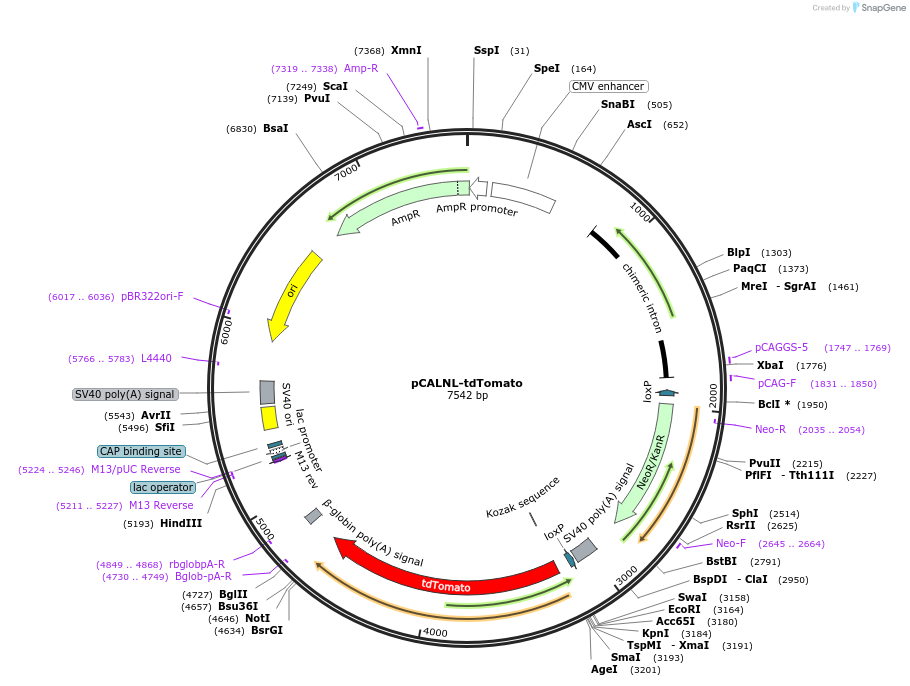pCALNL-tdTomato
(Plasmid
#194205)
-
PurposeCre/LoxP-dependent expression of a tdTomato. Expression of Cre excises a STOP codon before tdTomato, facilitating fluorescence expression of tdTomato.
-
Depositing Lab
-
Publication
-
Sequence Information
Ordering
| Item | Catalog # | Description | Quantity | Price (USD) | |
|---|---|---|---|---|---|
| Plasmid | 194205 | Standard format: Plasmid sent in bacteria as agar stab | 1 | $89 | |
Backbone
-
Vector backbonepCALNL-GFP
-
Backbone manufacturerAddgene; catalog no. 13770
- Backbone size w/o insert (bp) 4698
-
Vector typeMammalian Expression, Cre/Lox
Growth in Bacteria
-
Bacterial Resistance(s)Ampicillin, 100 μg/mL
-
Growth Temperature37°C
-
Growth Strain(s)DH5alpha
-
Copy numberHigh Copy
Gene/Insert
-
Gene/Insert nametdTomato
-
Insert Size (bp)1441
-
MutationWT
Cloning Information
- Cloning method Restriction Enzyme
- 5′ cloning site unknown (unknown if destroyed)
- 3′ cloning site unknown (unknown if destroyed)
- 5′ sequencing primer pCAG-F
- (Common Sequencing Primers)
Resource Information
-
Supplemental Documents
Terms and Licenses
-
Academic/Nonprofit Terms
-
Industry Terms
- Not Available to Industry
Trademarks:
- Zeocin® is an InvivoGen trademark.
These plasmids were created by your colleagues. Please acknowledge the Principal Investigator, cite the article in which the plasmids were described, and include Addgene in the Materials and Methods of your future publications.
-
For your Materials & Methods section:
pCALNL-tdTomato was a gift from Angelique Bordey (Addgene plasmid # 194205 ; http://n2t.net/addgene:194205 ; RRID:Addgene_194205)



